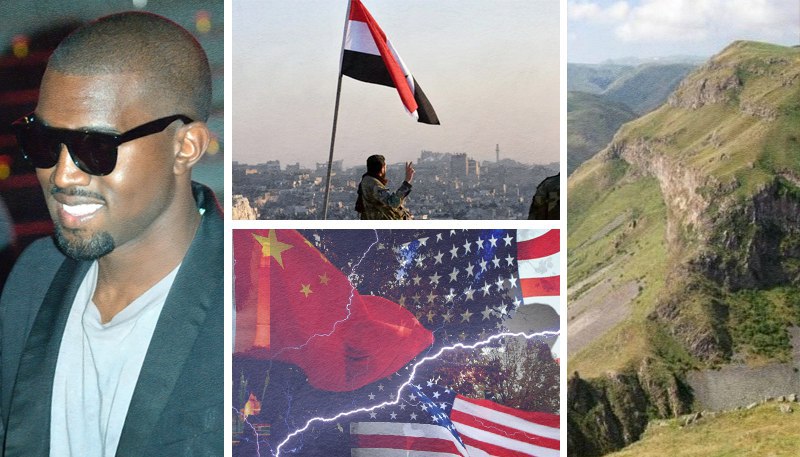The conflict between Azerbaijan and Armenia
Over the past week, the military forces of Azerbaijan and Armenia have continued shelling each other’s positions.
The situation on the border between the Tovuz region of Azerbaijan and Armenia’s Tavush region escalated on July 12. The Azerbaijani side claimed the death of 11 of its military personnel, one civilian and injuries to four soldiers.
On July 16, the Ministry of Defense of Azerbaijan announced the resumption of fighting on the border, as a result of which a soldier was killed. Armenia reports the death of four servicemen, but there is no way to verify the reality of these figures.
Both sides of the conflict accuse each other of escalation. The large-scale conflict between Armenia and Azerbaijan may lead to the involvement of Turkey as an ally of Azerbaijan and Russia as Armenia’s formal ally.
At the same time, Moscow is forced to make a choice in any case – either in favor of Armenia (then it will lose a partner in the face of Azerbaijan and will upset relations with Turkey), or in favor of Azerbaijan (then it will undermine its own security structure in the region – the CSTO, which includes Armenia).
The clash between Moscow and Ankara in South Caucasia will be a diversion for both countries from Libya and Syria, where foreign forces will try to fill the gap. Thus, the countries of Europe and the United States, as well as the countries of the Persian Gulf, will primarily benefit from the capture of Russia and Turkey.
Parliamentary elections in Syria
On July 19, parliamentary elections were held in Syria. The elections were divided into constituencies, each citizen having the right to vote only in their place of permanent residence. An exception was made in all elections during the war in the country for citizens who had fled from territories occupied by terrorists. For residents of the governorates of Idlib and Raqqah, the authorities have installed additional ballot boxes at their temporary residences.
Apart from the territories occupied by the Islamist forces, elections were not held in north-eastern Syria. This region is being held in their hands by units from the so-called Syrian Democratic Forces, consisting mainly from Syrian PKK branch, assisted by the United States.
Syria’s unicameral parliament has 250 seats. Most of them belong to deputies from the National Progressive Front, the backbone of which is the Baath Party led by Bashar al-Assad. Experts do not forecast any notable changes in the composition of the parliament.
Kanye West announces presidential run
On July 19, American hip-hop singer Kanye West held his first meeting with his supporters as a candidate for the US presidency. The event was held in South Carolina and gathered around 200 people. During the meeting, West was crying, talked about God, abortions and the fact that Democrats do not care about the fate of black people in the United States.
The eccentric musician joined the campaign despite the fact that they can no longer register him officially. The only thing he can count on is for his supporters to put him on the ballot in the states where that is allowed.
According to analysts, West’s main purpose in this campaign is to “split” the democratic electorate, thus playing into the hands of the incumbent White House head. But the West factor is more likely to play against Trump, attracting part of the small black electorate of Trump himself. In fact, both West and Trump appeal to one part of the black population – media-oriented characters, embodying success and wealth and dissatisfied with the Democratic Party rhetoric.
European Union: sanctions threats
On July 19, without naming specific countries, France, Germany and Italy stated that they were ready to consider imposing sanctions on those states that supply arms to Libya.
This is primarily the case of Turkey, which has been accused of supplying weapons to Libya. The EU has previously raised the issue of sanctions against Ankara for other reasons.
On July 13, EU foreign ministers did not rule out the imposition of sanctions against Turkey for “violation of the sovereign rights of Greece and Cyprus” in connection with the exploration of energy resources in the Eastern Mediterranean, reports TV channel Euronews.
The same day, EU High Representative for Foreign Affairs and Security Policy Josep Borrel at a press conference after the meeting of the EU foreign ministers directly demanded from Turkey to comply with the arms embargo.
The position of the EU is unilateral. Threatening Turkey, the EU is much softer to the countries supplying weapons to the Libyan National Army Khalifa Haftar, primarily the UAE.
The fact that the EU is simultaneously threatening sanctions on Libya and Cyprus means that these issues are linked for European countries. The EU intends to prevent Turkey from accessing Eastern Mediterranean resources, using sanctions as a leverage to influence Ankara’s policies in the region.
China is threatening the US with sanctions
China intends to impose retaliatory sanctions against the US after Donald Trump signed a decree on measures to put pressure on Beijing in connection with the situation in Hong Kong. This was announced by Chinese Foreign Ministry spokesman Hua Chunyin on July 15.
On July 14, Trump signed a law on sanctions against China in connection with the situation in Hong Kong, an executive order to cancel US trade and economic preferences for this special administrative region of China, as well as a decree depriving the special administrative region of special status.
On July 14, the Chinese Foreign Ministry announced that Beijing is imposing sanctions against US military industrial corporation Lockheed Martin, which is the main contractor of the deal to sell military equipment to separatist authorities of Taiwan. Earlier, the US State Department approved the possible sale of equipment to Taiwan to modernize Patriot systems worth a total of $620 million. The main contractor of the deal is Lockheed Martin.

















Leave a Reply